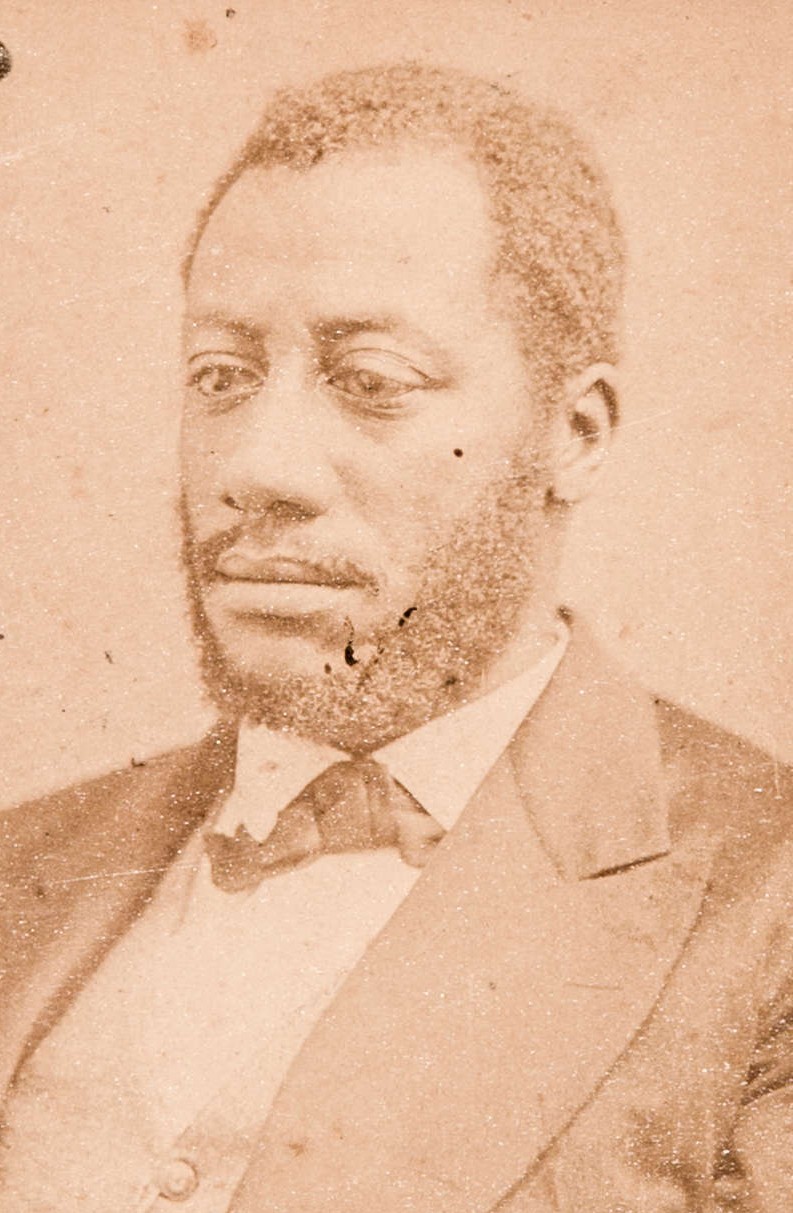Lewis Henry Douglass was an Army veteran, journalist, printer, and community activist who fought against racial inequality in America. A native of New Bedford, Massachusetts, Douglass was born on October 9, 1840, and was the eldest son of Frederick Douglass and Anna R. Murray-Douglass. He was the husband of Amelia Douglass and the brother of Rosetta Sprague, Frederick Douglass, Jr., Charles Remond Douglass, and Annie Douglass.
Several years after he was born, the family moved to Lynn, Massachusetts, and then to Rochester, New York, where, at sixteen, he entered his father’s printing office and began to learn the printing trade. Upon learning that his children could not attend a nearby public school, his father hired a private tutor. Frederick Douglass also began a successful lobbying effort to desegregate schools in his adopted city of Rochester, New York. Lewis aided his father’s antislavery efforts by setting the type for his newspaper, The North Star.
In 1863, Lewis Douglass, now and adult, was teaching at a school in New Jersey. Still, when he learned that his younger brother, Charles, had enlisted in the 54th Infantry, he immediately resigned from this school and enlisted in the same regiment, becoming its Sergeant Major. He took part in the famous assault on Fort Wagner, where his Colonel, Robt. G. Shaw and several hundred of the enlisted men fell. Lewis Douglass was disabled and a year later was discharged for disability.
After the war, Douglass settled in Denver, Colorado. He was employed as a compositor on the Denver News, a Democratic paper. He then came to Washington, D.C. and was appointed the first of his race as a compositor in the Government Printing Office. He was later promoted to proofreader.
In 1870, Douglass became Editor-in-Chief of the New National Era, a collaborative weekly newspaper effort between Frederick Douglass and civil rights activist, J. Sella Martin. The paper urged its Black readers to take advantage of educational opportunities and championed women’s rights, including the right to vote.
Douglass was also a member of the Upper House in the District of Columbia’s territorial government. He took a deep interest in the organization of the District’s Public School system. He later served as Deputy United States Marshal for the District of Columbia, following his father who was the first Black U.S. Marshal in the nation when appointed U.S Marshal for the District of Columbia by President Rutherford B. Hayes in 1877. Lewis Douglass later served as inspector for the Post Office Department.
After suffering a stroke in 1904, Lewis Douglass declined in health. He died four years later at sixty-seven in Washington, D.C.
Do you find this information helpful? A small donation would help us keep this available to all. Forego a bottle of soda and donate its cost to us for the information you just learned, and feel good about helping to make it available to everyone.
BlackPast.org is a 501(c)(3) non-profit and our EIN is 26-1625373. Your donation is fully tax-deductible.
Geni.com, “Sgt. Maj. Lewis Henry Douglass (1840 – 1908) – Genealogy,” https://www.geni.com/people/Sgt-Maj-USA-Lewis-Henry-Douglass/6000000012153875582; Scott Vierick, CIP, “Frederick Douglass, Family, and the Fight for the Soul of the Nation,” https://www.historyassociates.com/frederick-douglass-family/.

